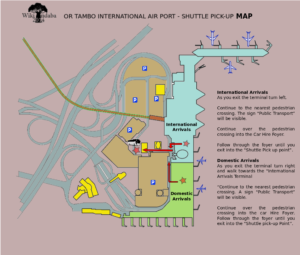“Dr. Alan Mxxx. . . please report to the TSA agent near gate 47 immediately!” My friend “Dr. Al” and I were headed to Africa and he was called to security in New York. The TSA and police in JFK wanted to inspect his firearms. They identified his case as being worthy of scrutiny because it was emblazoned with several firearms-makers advertising stickers and Pro 2nd Amendment stickers. Dr. Al had all of his documents with him and was soon on his way, but that incident and others have taught us along the way on “how” and “how not” to travel with firearms when flying to Africa to hunt.
Among top concerns of travelling sportsmen and sportswomen is getting important gear, especially personal firearms, to Africa without delays or hassles (or worse). Topping the list of fears of hunters is arriving in camp without your trusted Winchester Model 70 rifle or ammunition.
Arriving without your firearm will affect the hunters focus and gnaw at the back of his/her mind until it is back safely in their hands. Fortunately, in many camps it is possible to borrow or rent a “loaner” firearm. While the loaned rifle is never quite as comfortable as having your own trusted rifle in your hands, it is much better than having to cancel the hunt!
Since we have had many trips to Africa we list here some of our top suggestions on getting yourself and your gear into South Africa (and beyond). If you have questions or would like more information, please call JD at 706-502-2898 or visit our Resources pages for helpful links and downloadable forms.
- Travel route/airports: Ensure the airline and the route you will travel only land in airports that permit firearm transfer (important if plane changes are required). Airports that currently do not allow firearm transfer: Amsterdam/Schiphol, and London Heathrow, among others.
- Ammunition protection: Airlines vary in requirements for transporting ammunition. Check with your airline in terms of where ammunition may be transported (e.g. with the firearm or separate) and if it requires its own locking container.
- Rifle cases: Rifle cases must be airline approved- additionally be sure your case is sturdy and can withstand the rigors of travel.
- Customs forms: In the USA, you are strongly recommended to document your property taken abroad with the customs form 4457. This form is available from CBP and is filled out by the traveller and then documented by the CPB at the airport. You must physically bring your firearms to the airport for Customs to inspect and verify the model and serial number. We strongly suggest calling ahead and making an appointment with the agent. Upon arrival go the CBP office. The officer will typically come out to your vehicle to look at your firearms. Once you have this form, make copies and keep it with you at all times when travelling. Police officials in South Africa frequently ask for these forms also so it pays to keep them handy.
- Check in at the airport: When arriving at the check in counter you must declare to the airline representative that you are travelling with firearms. The agent will normally give you a form to sign that indicates the firearm is unloaded. After check in and ticketing, the agent will have you take your rifle case to the TSA agent for inspection.
- TSA inspection: The TSA agent will usually check your case and then have you lock your rifle case before sending it on to be placed in cargo on your plane. We suggest using shipping tape to secure padlocks to the case and prevent them catching on the luggage conveyor. Also taping down the locks makes your case less attractive to any potential thieves as this will slow them down slightly.
- Importing rifles in South Africa: Most hunters that are going to Africa transit Johannesburg international. If you plan on staying overnight or are planning to hunt in South Africa you will need to temporarily import your firearms. We recommend using a service that provides a pre-approved permit (for a fee). Recommended agencies we have had experience with are Gracy Travel and Riflepermits.com. In all cases you will be required to fill in the South African Police Force Form 520.
- Upon arrival in South Africa: Travellers will collect luggage after passing through immigration and passport formalities. Your rifles will NOT be with your normal luggage (don’t panic!). You will find your rifles in the Police station which is just to the right of the meeting area after customs on the ground level.
- At the Police Station: If you paid a service for a pre-approved permit you will be met at the aircraft or after you collect your luggage. The representative of the service will have identification and usually will have a sign board with your names on it to help locate you. The police will bring your cases out to check the serial numbers if your firearms and compare that to the import forms (SAPS 520) . The police may also request to see several documents from you including:
- US customs 4457 forms
- Letter of invitation from the hunting safari outfitter
- Airline itinerary
- Completed SAPS 520 form
- Ammunition quantity: When filling in SAPS or other forms it is important to be specific on ammo quantity. There have been instances where the count was incorrect by a few shells that delayed hunters from travelling.
- Luggage porters: There are some VERY aggressive luggage porters in Johannesburg. They are to be avoided – they will try to push your cart and team up in twos; they will also try to do the same to your travel companion if you are bringing one. Be firm, and be ready for them, as they will run you around the airport and waste your time and try to extract a ridiculous tip.
- Johannesburg hotel transport: There are a few hotels near the airport offering a meet and greet service and will pick you up in customs. The charge for this service is quite reasonable. It saves time and gets you to the hotel without further delay (which after being on flight and travelling for what seems forever makes sense – time for a hot shower and a cold drink and a meal not served in a tin tray). Contact us, or check out our resources tab for recommendations.
- Hotel shuttle: The shuttles leave directly adjacent to the train station underneath the City Lodge hotel. The walkway to this location never feels quite right but it’s there…see map.
- Internal flights: If you are travelling to an onward location after Johannesburg, you will bring your luggage and rifle cases to the domestic terminal check in area. You may be requested to show your import permit again if travelling domestically. Important: Check with the internal flights regarding where they require travelling with ammunition- it may/may not be the same as the international flight.
- Departing South Africa: Once you have either completed your hunt or are leaving South Africa to go to an onward location you will have to surrender your import permit and show your firearms again to the South African Police force. This departure office is in a different location than the import office. The SAPS are checking to be sure you are leaving with the same firearms that you arrived with.
- Return to USA: Upon arrival you can collect your rifles usually in a large luggage/skis/golf club luggage area. The customs officials may ask to see your Customs 4457 forms again and ask to clean your hiking shoes of any possible dirt/debris (this is to prevent undesirable insect matter).
- Other tips: Although we are very ardent hunters and shooters, we recommend not labeling your firearms cases with pro hunting/2A stickers or other potentially attracting labels that advertise you are travelling with firearms. As you’ve read the story in the opening paragraph, these labels have caused delays for friends of mine while travelling through airports with unfriendly staff – it only takes one jerk to slow you down and spoil your trip – don’t risk it. If you have any questions, call JD at 706-502-2898 or complete our questionnaire online. Are you ready to “Step up your game,” with JD African Safaris?

